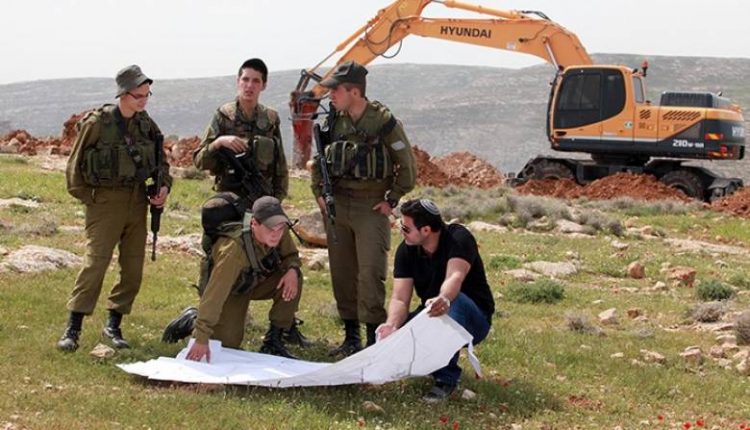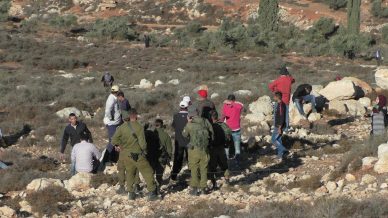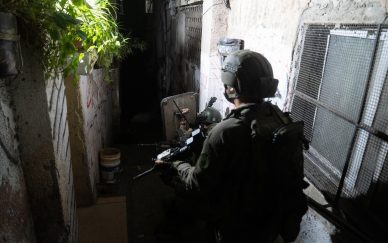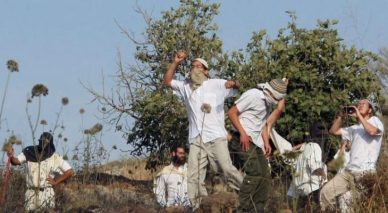WEST BANK, (PIC)
Israel’s security cabinet approved on Sunday a decision aimed at implementing large-scale land registration in the West Bank for the first time since the territory came under occupation in 1967.
This Israeli decision would lead to the final registration of property rights in Area C of the West Bank – the area placed under exclusive Israeli control according to the Oslo Accords. This violates international law on occupied Palestine and is expected to deepen discrimination against Palestinians, who are likely to face significant challenges in proving their land rights.
Additionally, the security cabinet instructed the Israeli military establishment to halt “by any means at its disposal” a parallel land registration process initiated by the Palestinian Authority (PA). Israeli war minister Israel Katz said the decision would strengthen Israeli settlements in the West Bank area.
The term “land registration” refers to the official recording of property rights following a process of mapping and verification of ownership claims. Once finalized, the registration, known in Palestine as Tabu, is very difficult to contest. As part of the process, any land without documented ownership claims is transferred to the Israeli occupation state.
Land registration efforts in the West Bank began during the British Mandate of Palestine and continued under Jordanian rule, but Israel froze the process after occupying the Palestinian territory.
Lawyer Michael Sfard, a specialist in international human rights law and the laws of war, told the Hebrew media that the decision violates the fundamental principle that bars occupying powers from making long-term changes in occupied territory.
“There is no chance that Palestinians will have their rights recognized,” he said, adding that the decision will lead to “a massive land grab by Israel of all lands in Area C.”
“It is no coincidence that occupiers are prohibited from conducting land registration,” he added. “The ban stems from the fact that under occupation, it is impossible to carry out such a process freely.”
“Palestinians do not have access to the information and documents needed to prove their rights,” the lawyer said. Sfard also noted that so-called absentees, meaning Palestinians who do not live in Israel or the West Bank, cannot participate in the process, even if they are landowners. “The occupying power, and not a neutral party, adjudicates the claims. This fuels a complete mistrust and a fear, pushing many Palestinians to avoid taking part in the process.”
The draft resolution formulated by Katz and finance minister Bezalel Smotrich says that the security cabinet will instruct the Israeli army’s central command chief to initiate land registration in Area C.
Under the plan, Israel’s justice ministry’s land registry and settlement of rights department, as well as the army’s legal adviser and its settlement administration will work on finalizing a policy framework within 60 days to implement the registration process.
In recent years, the PA launched its own land registration process, which the Israeli government does not recognize.
According to Haaretz website, the decision also outlines measures like blocking PA officials and surveyors from entering areas where the registration process is underway, preventing the transfer of foreign financial aid intended to support the PA and demanding that senior PA officials halt their registration efforts.
An additional clause of the decision instructs the army’s chief of staff, the head of the Shin Bet security agency and the Mossad chief to provide the finance ministry with information on funds the PA invested in the registration process, including money raised from foreign countries. This information would then be used to deduct the amounts from taxes Israel collects from Palestinians and transfers to the PA.
Katz called the decision “revolutionary,” claiming it “does justice for Jewish settlement in the West Bank and will lead to its strengthening and expansion.”
Smotrich, for his part, said “the land registration process joins other efforts to regulate new settlements, planning, construction and the development of roads and infrastructure that we are leading to bring another million settlers [into the area], strengthen Israel’s security belt and eliminate (what he labeled as) the threat of a Palestinian terror state.”















